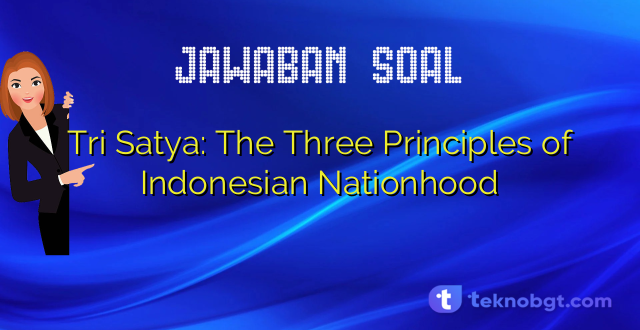Indonesia, as a nation, is built on three core principles known as Tri Satya. These principles were first introduced by Indonesia’s first president, Sukarno, and have been a guiding force for the nation’s development ever since. In this article, we will explore the history and significance of Tri Satya and how it has shaped modern-day Indonesia.
The Three Principles of Tri Satya
The first principle of Tri Satya is “Belief in One Supreme God”. This principle recognizes that the majority of Indonesians are Muslim, but also acknowledges the importance of other religions in the country. It promotes religious tolerance and encourages Indonesians to practice their faith in a peaceful and harmonious manner.
The second principle is “Nationalism”. This principle encourages Indonesians to take pride in their country and to work towards its development and prosperity. It emphasizes the importance of unity and solidarity among all Indonesians, regardless of their background or ethnicity.
The third principle is “Social Justice”. This principle promotes fairness and equality for all Indonesians. It recognizes the importance of eradicating poverty, reducing inequality, and ensuring that all citizens have access to basic necessities such as education and healthcare.
The Historical Significance of Tri Satya
The three principles of Tri Satya were first introduced by Sukarno during Indonesia’s struggle for independence from Dutch colonial rule. Sukarno believed that these principles were essential for the creation of a strong and united Indonesian nation. After Indonesia gained independence in 1945, these principles were enshrined in the country’s constitution and have since become an important part of Indonesian national identity.
Tri Satya has also played a key role in shaping Indonesia’s foreign policy. The principles of religious tolerance, nationalism, and social justice have guided Indonesia’s relations with other countries and its participation in international organizations such as the United Nations.
Tri Satya in Modern-Day Indonesia
Today, Tri Satya remains an important part of Indonesian culture and society. It is taught in schools and universities, and is often referenced in political speeches and public discourse. The principles of religious tolerance, nationalism, and social justice continue to guide Indonesia’s development and progress.
However, some critics argue that Tri Satya is not always fully implemented in practice. They point to issues such as corruption, religious intolerance, and social inequality as evidence that Indonesia still has work to do in fully realizing the principles of Tri Satya.
Conclusion
Tri Satya is an essential part of Indonesian national identity. It promotes religious tolerance, nationalism, and social justice, and has played a key role in shaping Indonesia’s development and foreign policy. While there is still work to be done in fully implementing these principles in practice, Tri Satya remains a guiding force for Indonesia’s future.
Artikel Tri Satya: The Three Principles of Indonesian Nationhood
© Copyright 2023 TEKNOBGT.COM














